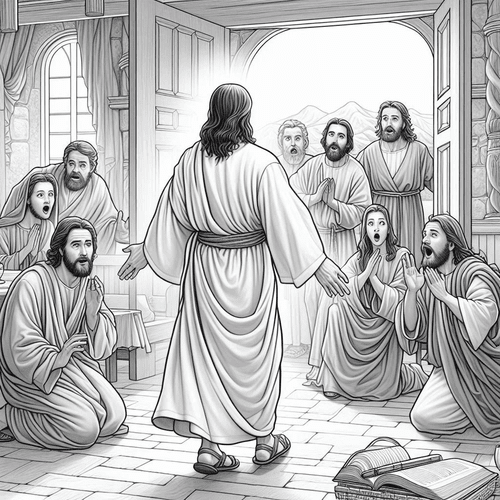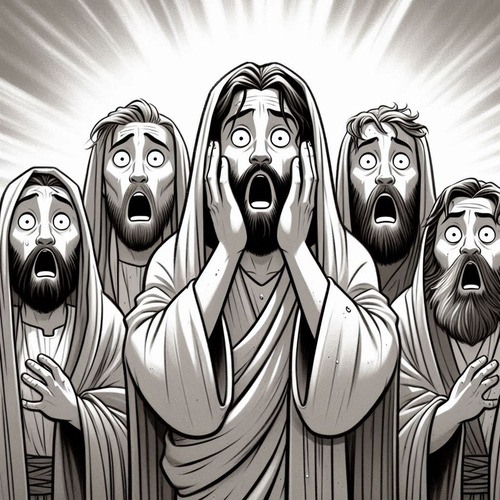Last Words on the Cross: Into Your Hands I Commit My Spirit
FROM OUR SERIES ON CHRIST’S SEVEN FINAL UTTERANCES FROM THE CROSS
In the culminating moments of His earthly life, as darkness covered the land and the veil of the temple was torn in two, Jesus spoke His final words before yielding His spirit: “Father, into your hands I commit my spirit” (Luke 23:46). These words, though brief, carry deep theological significance.
THE BIBLICAL CONTEXT
Jesus’ final utterance was a direct quotation from Psalm 31:5, where David wrote, “Into your hand I commit my spirit; you have redeemed me, O LORD, faithful God.” What makes this significant is that while experiencing the most excruciating physical and spiritual agony imaginable, Jesus turned to Scripture—showing us God’s Word sustains even in life’s darkest moments.
Luke records this as Christ’s final statement, though the Gospels preserve seven statements from the cross in total. Earlier, Jesus had cried out, “My God, my God, why have you forsaken me?” (Matthew 27:46)—a moment when He bore the full weight of sin’s separation. But His final words reveal the communion with the Father was restored. The work was finished.
A VOLUNTARY SURRENDER
From a Reformed perspective, these words powerfully demonstrate a core theological truth: Christ’s death wasn’t merely something that happened to Him, but something He actively accomplished. As Jesus said in John 10:18, “No one takes [my life] from me, but I lay it down of my own accord.”
This voluntary surrender aligns perfectly with Reformed theology’s emphasis on God’s sovereignty in salvation. Christ wasn’t a passive victim but the active agent in redemption, perfectly executing the divine plan established before the foundation of the world. His death wasn’t a tragic accident but the fulfillment of an eternal decree.
THE COVENANTAL FRAMEWORK
Reformed theology particularly emphasises the covenantal framework of Scripture. In His final breath, Jesus demonstrated His role as the covenant-keeper. Where Adam failed in obedience, Christ succeeded—even unto death. These final words show complete trust in and submission to the Father’s covenant purposes.
The phrase “I commit my spirit” represents the culmination of Christ’s perfect obedience. Throughout His life, Jesus perfectly obeyed the Father’s will, and His final act was one of trust and submission. By calling God “Father” rather than “God” in this moment, Jesus also affirms the relationship remains intact—the temporary separation experienced earlier has been resolved as the work of atonement reaches completion.
SUBSTITUTIONARY ATONEMENT
At the heart of Reformed soteriology lies the doctrine of substitutionary atonement—Christ died in our place, bearing the punishment we deserved. His final words demonstrate He bore the full weight of sin’s penalty, including death itself, yet remained in perfect communion with the Father.
By committing His spirit to the Father, Jesus demonstrates death does not have the final word. For the believer united to Christ, death becomes not an ending but a transition into the Father’s presence. This is why Paul could later write with confidence that to be “absent from the body” is to be “present with the Lord” (2 Corinthians 5:8).
THE PERFECT EXAMPLE
Jesus’ final words provide the ultimate example of how believers should approach both life and death. In a world filled with uncertainty, Jesus demonstrates absolute trust in the Father’s care, even at the moment of death.
This models for believers what Reformed theology emphasizes about God’s providential care. If Christ could entrust His spirit to the Father at the moment of greatest suffering, how much more should we trust God through our comparatively lesser trials?
ASSURANCE FOR BELIEVERS
For those embracing Reformed theology, Christ’s final words offer profound assurance. Because Christ’s work is finished and He has entrusted Himself to the Father, believers can have confidence that those united to Christ by faith will likewise be received by the Father.
This assurance isn’t based on our own worthiness or even the strength of our faith, but on the completed work of Christ. Just as Jesus committed His spirit with confidence, believers can approach death not with fear but with the assurance that the Father’s hands await them.
CONCLUSION: LIVING AND DYING IN FAITH
These final words challenge us to examine how we live and how we hope to die. Are we daily committing our spirits to God’s care? Are we living in such dependence on the Father that our final moments could mirror Christ’s trust?
For the believer, these final words remind us salvation is God’s work from start to finish. Christ began His ministry with the Father’s affirmation at His baptism and concluded it by returning to the Father’s hands. Between these moments, He accomplished everything necessary for our redemption.
Christ’s example calls us to practice daily what He demonstrated perfectly—complete surrender to and trust in the Father. In life and in death, may we follow our Saviour’s example, entrusting ourselves fully to the faithful hands of our covenant God.
LAST WORDS ON THE CROSS: RELATED FAQs
Did Jesus speak these final words in Hebrew, Aramaic, or Greek? Most scholars believe Jesus likely spoke His final words in Aramaic, the common language of first-century Palestine. The Gospel writers translated these words into Greek for their audiences, which explains some of the minor variations in wording across accounts. This linguistic journey from Aramaic to Greek to our modern translations adds layers of meaning worth exploring.
How do these final words relate to Jesus’ statement “It is finished” in John’s Gospel? John records Jesus saying “It is finished” (John 19:30) while Luke records “Father, into your hands I commit my spirit.” These aren’t contradictory but complementary statements likely spoken in succession. “It is finished” declares the completion of Christ’s redemptive work, while committing His spirit represents the personal surrender that followed that completion.
How does Calvin specifically interpret these final words? John Calvin emphasised this statement reveals Christ’s unwavering confidence in the Father despite the horrors of the cross. Calvin noted Jesus’ voluntary surrender demonstrates that even in death, He remained in control, not as one conquered by death but as one who “commends” or deposits His life with the Father for safekeeping—a model for believers facing persecution.
What does the Reformed view of Christ’s human and divine natures reveal about these words? Christ’s final words beautifully demonstrate the interaction between His human and divine natures. As fully human, Jesus experiences real death and places childlike trust in His Father; as fully divine, He demonstrates authority over death itself by actively yielding His spirit. This hypostatic union means Christ’s death accomplishes what no mere human death could.
How do these words connect to the Reformed understanding of effectual calling? Christ’s commitment of His spirit to the Father provides a pattern for the believer’s response to God’s effectual call. Just as Jesus entrusted Himself completely to the Father’s hands, those effectually called by God respond with a similar surrender of trust. The difference is that Christ’s surrender was perfect, while ours is made possible only through His prior work.
What pastoral comfort do these words offer those experiencing spiritual darkness? For believers experiencing spiritual darkness or feelings of abandonment, Christ’s journey from “Why have you forsaken me?” to “Into your hands I commit my spirit” offers profound hope. These words reveal that even the deepest spiritual anguish can resolve into perfect trust. Reformed pastors often highlight this progression as evidence that spiritual darkness is not permanent for those in Christ.
How does the doctrine of perseverance relate to Jesus’ final expression of trust? The Reformed doctrine of perseverance of the saints finds its ultimate example in Christ’s final words. Jesus persevered in faithful obedience to the very end, even through unimaginable suffering. His perseverance secures and guarantees the believer’s perseverance, giving us confidence that the One who committed His spirit perfectly enables us to remain faithful through His sustaining grace.
SEVEN UTTERANCES FROM THE CROSS: OUR RELATED POSTS
Editor’s Pick
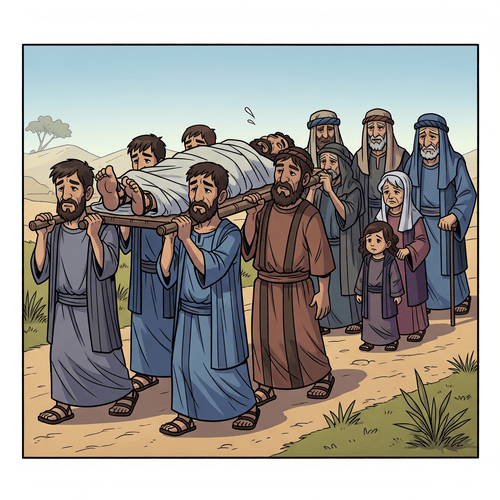
Why Did God Kill Onan? Wasn’t the Punishment Disproportionate?
The story of Onan in Genesis 38 troubles many. Why would God strike down a man for what seems like [...]

Is God Preparing Me for Ministry? How May I Know for Sure?
The question haunts many faithful believers. You’re serving faithfully in your local church, perhaps teaching Sunday school or leading a [...]
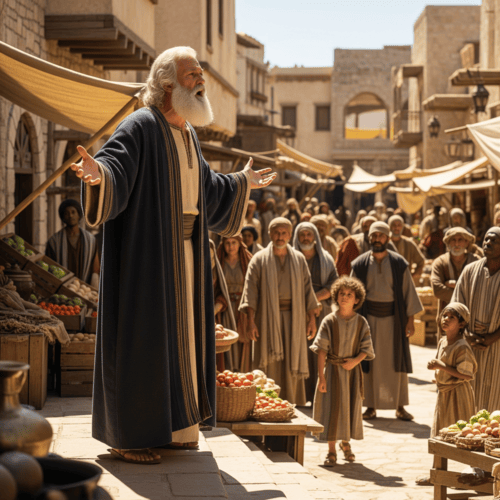
Ephesians 1:13: Was the Spirit’s Indwelling Promised of Old?
When Paul declares believers are “sealed with the promised Holy Spirit” in Ephesians 1:13, one word jumps off the page: [...]
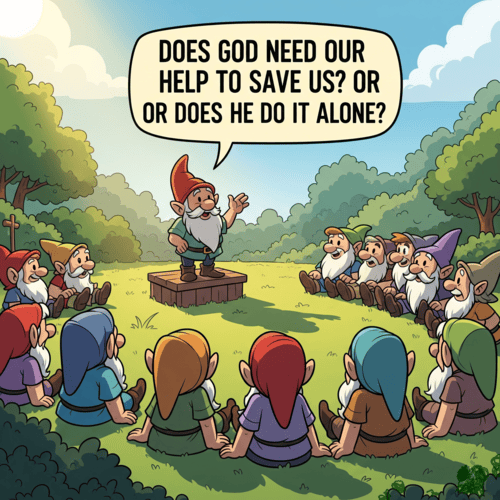
Monergism vs Synergism: Is Salvation God’s Work Alone?
When God saves us, does He do it alone, or does He need our help? The question isn’t mere theological [...]

Was Jesus Abandoned by the Father on the Cross?
WHY WE ANSWER IN THE NEGATIVE “My God, my God, why have you forsaken me?” These words from the cross [...]

Why Do Some Respond to God’s Call While Others Don’t?
THE REFORMED VIEW ON OUTWARD AND INWARD CALLS EXPLAINED Picture this: Two neighbours attend the same church service. They hear [...]

Does Ocean Salt Content Prove a Young Earth?
A COMPELLING LOOK AT MARINE CHEMISTRY AND EARTH’S TIMELINE The Salt Question That Challenges Deep Time: If Earth’s oceans have [...]
Noah’s Flood: Where Did All the Water Come From? And Go?
The question hits every Bible-believing Christian at some point: “If Noah’s flood covered the whole earth, where did all that [...]

No Marriage in Heaven? What Does Mark 12:25 Mean?
“Will I see my spouse in heaven? Will we still be married?” These questions pierce the heart of every Christian [...]
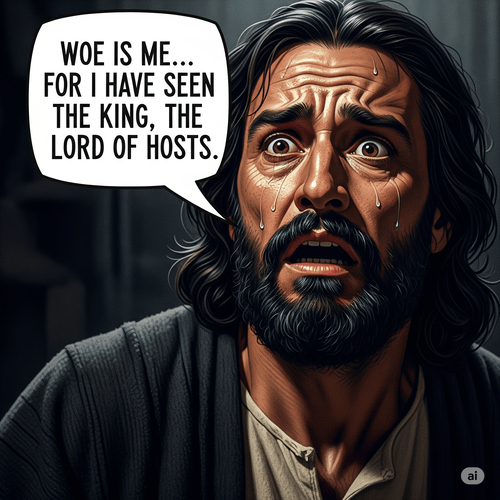
The Terror of Meeting God: What Isaiah 6 Reveals About Divine Holiness
WHEN ‘WOE IS ME’ IS THE ONLY PROPER RESPONSE TO A GLIMPSE OF GOD Picture this: You’re a prophet of [...]



